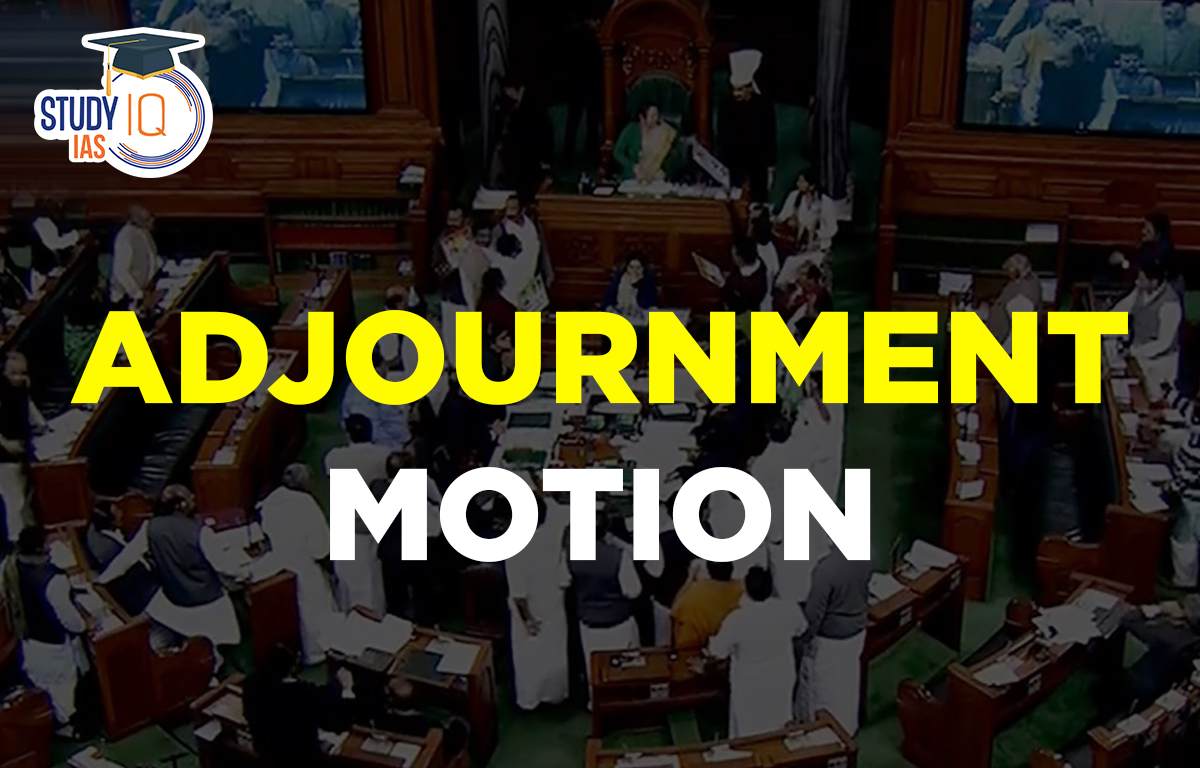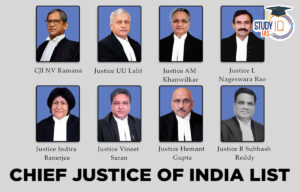Table of Contents
Adjournment Motion
The Lok Sabha now has a procedure called an Adjournment Motion that can be used to bring up a pressing matter. The adjournment motion pauses the House’s usual activities to discuss an important issue. To introduce the motion, at least 50 members must support it. This article provides all the details about the adjournment motion for UPSC preparation.
What is Adjournment Motion?
The adjournment motion aims to highlight urgent public issues that need immediate attention. A regular motion would be too slow for matters that could have serious consequences for the country’s integrity and security. The Lok Sabha stops its usual business to discuss these important topics, which should relate to the duties of the Central Government. The motion can also address failures by the Central Government to fulfill its responsibilities. Details of these failures must be included in the motion, and issues related to state governments cannot be discussed. Matters affecting national security or injustices against Scheduled Castes, Scheduled Tribes, and Other Backward Classes can be raised.
Adjournment Motion Purpose
It cannot be used in the Rajya Sabha since it is viewed as a rebuke of the government. Once the motion has been approved by the Lok Sabha, it may have an impact on currently scheduled meetings and become the subject of a lengthy discussion. However, following an adjournment motion, meetings cannot last longer than two hours and thirty minutes.
An Adjournment Motion’s main goal is to bring up a significant topic that has significant implications for the public and is of public concern. The fact that such a problem cannot wait for a thorough resolution with notice must be made clear.
The proposed issue must be connected, either directly or indirectly, to the Union Government’s default. It must refer to the Indian Government’s failure to carry out its obligations under the Indian Constitution. The Chair has the option to reject the adjournment motion without outlining the grounds for doing so.
Time for Discussion of Adjournment Motion
The motion is usually discussed at 4:00 PM and must last at least two and a half hours unless finished early. During the discussion, the House decides if it will adjourn for the day; the Speaker cannot make that decision. Also, the Speaker cannot call for a vote until the next session, and the motion must be resolved before the House adjourns.
Adjournment Motion Procedure
The following details the notice process for an adjournment motion;
- A member may only submit one notice; all copies of the notice must be delivered to the Parliamentary Notice Office.
- If a notice has more than one signature, the first signatory is considered to have given it.
- A vote is taken to confirm the order in which notices presented regarding the same topic were received.
- Written notices are the only ones that are accepted.
- Fifty members must support the problematic topic.
- Before deciding whether to approve or deny such a meeting, the Lok Sabha Speaker may read or hear the notice and request a brief comment on the subject.
An interruption this first-of-its-kind motion gives Lok Sabha members the authority to give priority to matters that call for swift action. Moving an item to debate violates the Parliament’s order of business and grants members a constitutional right to criticize the Central Government’s handling of the problem.
Adjournment Motion Limitations
Here are the few limitations on adjournment motions in the Indian Constitution:
- The issue must focus on only one topic.
- The presenter cannot raise questions about privilege.
- The matter should be new and not previously discussed in Parliament.
- The Speaker can dismiss irrelevant matters.
- The issue must be urgent, clear, and related to public welfare.
Keep these points in mind when submitting a notice. Once the debate starts, it is considered adjourned. The Lok Sabha can discuss and decide on the matter, but the Rajya Sabha cannot.
Conclusion
The adjournment motion is an important tool in parliamentary procedures. It lets the Houses discuss urgent national issues by pausing regular business. This motion allows the Lok Sabha to set aside other discussions and focus solely on the important topic. However, there is a specific process to follow when issuing an adjournment notice, and MPs must adhere to it; otherwise, their request may be denied.


 Justice BR Gavai will take oath as 52nd ...
Justice BR Gavai will take oath as 52nd ...
 Right To Information Act, Objective, Fea...
Right To Information Act, Objective, Fea...
 Indian Councils Act 1861, History, Provi...
Indian Councils Act 1861, History, Provi...





















